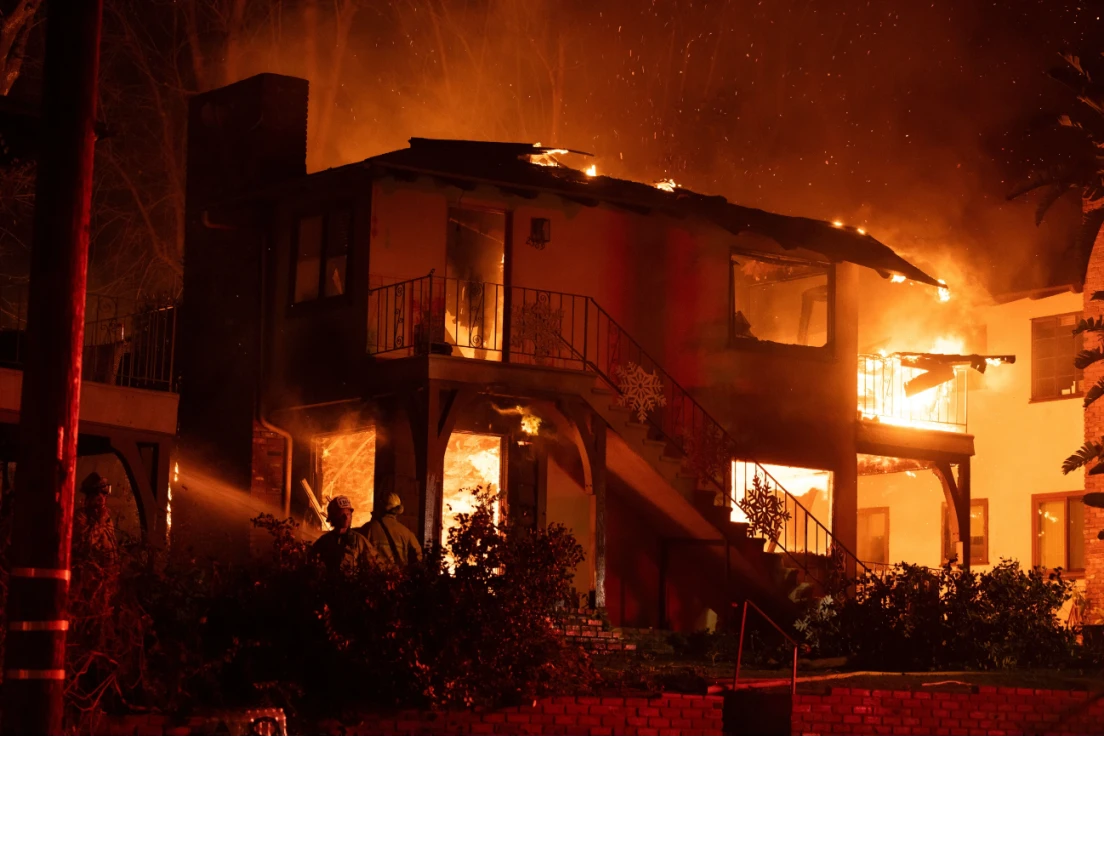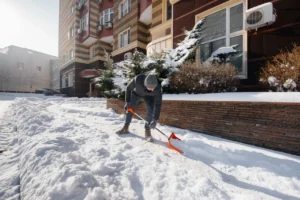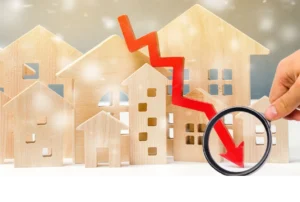Key Steps Property Managers Need To Take

If A Disaster Strikes, Is Your Property Prepared?
Fires, floods, major storms — no matter where a building is located in the U.S., it’s at risk of serious damage from a natural disaster. When these disasters strike, property managers are among the first on the scene, keeping everyone calm, organized and focused on the road ahead.
“The property manager becomes the incident commander when there’s an emergency,” said Jeffrey Lapin, CPM, ARM and a longtime member of IREM, the Institute of Real Estate Management. “Not all property managers are comfortable jumping into that role, but they need to be mentally prepared to step up when the time comes.”
While disasters may be unpredictable, that doesn’t mean property managers can’t do their best to prepare. Lapin and K. David Meit, CPM, principal of Oculus Realty, AMO, walked Bisnow through the steps property managers should take before, during and after an emergency to help building owners and tenants weather the storm and recover from the damage.
Making A Plan
Lapin said the surprising reality is that most property managers don’t have an emergency response plan, or, if they do, it’s generic and not detailed. He recommends property managers sit down with their teams and make a comprehensive plan that maps out all of the most likely natural disasters that could occur, which vary from state to state, and what each team member’s responsibilities will be should disaster strike.
Meit added that a key part of a disaster preparedness plan should be to inspect the building regularly.
“Property inspections are a huge part of risk management,” he said. “Managers should be constantly walking the property, thinking proactively about what they can do to reduce damage, loss, and liability before it ever becomes an issue.”
Some examples he gave of areas to inspect include fire sprinklers, roofing, safety equipment and gutters.
Paying Too Much For Insurance?
Get a FREE quote to insure your rental properties for less.
Training And Education
While making a disaster response plan is an important first step, that plan is only as good as the people who are executing it, Lapin said. This is why he recommends regular training and drills so staff and tenants are comfortable and familiar with the emergency plan. This is also a good way to spot any potential flaws or holes in the plan and adjust accordingly.
Training tenants along with staff is key, said Meit. People tend to panic in an emergency, so it’s important to have regular drills so tenants automatically know where to go when they hear an alarm go off. A lack of education can sometimes be the cause of emergencies in the first place.
“I had a fire two years ago in one of my apartment buildings that cost $75K to repair, all because a resident poured water on a grease fire,” Meit said. “Most people don’t actually know what to do in an emergency. If they’re living, working or playing in your building, it’s your duty to ensure they’re educated and prepared.”
It’s also important to confirm that tenants have property insurance and the correct number of people and pets in their homes. Having a comprehensive list of occupants, human and animal, is crucial to help first responders keep track of everyone during an emergency, Meit said.
He added that property managers should also ensure both they and their staff are educated on the National Fire Protection Association and International Code Council standards. Not only will this help them better understand what to do in the event of an emergency, but also ensure they are staying compliant.
Communicating With Contractors and Officials
Amid an emergency, communication is key. But it’s also important before and after a disaster has struck. Lapin recommends that property managers do their research to find out who will be the likely first responder in the case of an emergency. A qualified emergency restoration company manager who knows the property and the property manager should be on every property manager’s speed dial.
“I don’t want 1-800-call-me-back,” Lapin said. “I want the cell phone number of the person who can answer the phone at two in the morning and say, ‘OK, we’re mobilizing. We’ll be there in an hour.’ Property managers need to understand that in an areawide emergency, resources will be spread thin.”
Meit added that following a disaster, the press will often show up on the scene looking for information on what happened. Property managers need to be trained on how to communicate with the press in a way that’s educational and professional and doesn’t make the situation more complicated.
“Being a property manager is not unlike being a ringmaster in a circus,” Meit said. “In a disaster, you also have to step up and be the leader in the middle of chaos.”
Aiding With Relocation
Immediately following a disaster, tenants are going to be turning to property managers to help them find where they can work or live until the building is restored. Lapin said having preestablished relationships with nearby resources, such as a local hotel or motel manager, can be a major step while assisting tenants in need of relocation, but sometimes the job will fall on the managers themselves, so they need to be prepared.
He told the story of a time in the early 1990s when he was managing a multibuilding office complex in Los Angeles, and the Northridge earthquake of 1994 severely damaged the property.
“The shaking woke me up at four in the morning, and I immediately went to the site and took charge,” he said. “I was there for three days with my staff trying to get the building back together again. Our main tenant was constantly asking me where we were going to put them so they could resume conducting business. We figured out how to get them onto a vacant floor in a relatively undamaged office building. We had no power and no water, so we had to bring in porta potties and temporary electricity, but we made it work.”
The key, he said, is to always think ahead.
“My favorite quote is, ‘Don’t plan for your last disaster, plan for the next one,’” Lapin said.
Source: Bisnow













 Accessibility
Accessibility